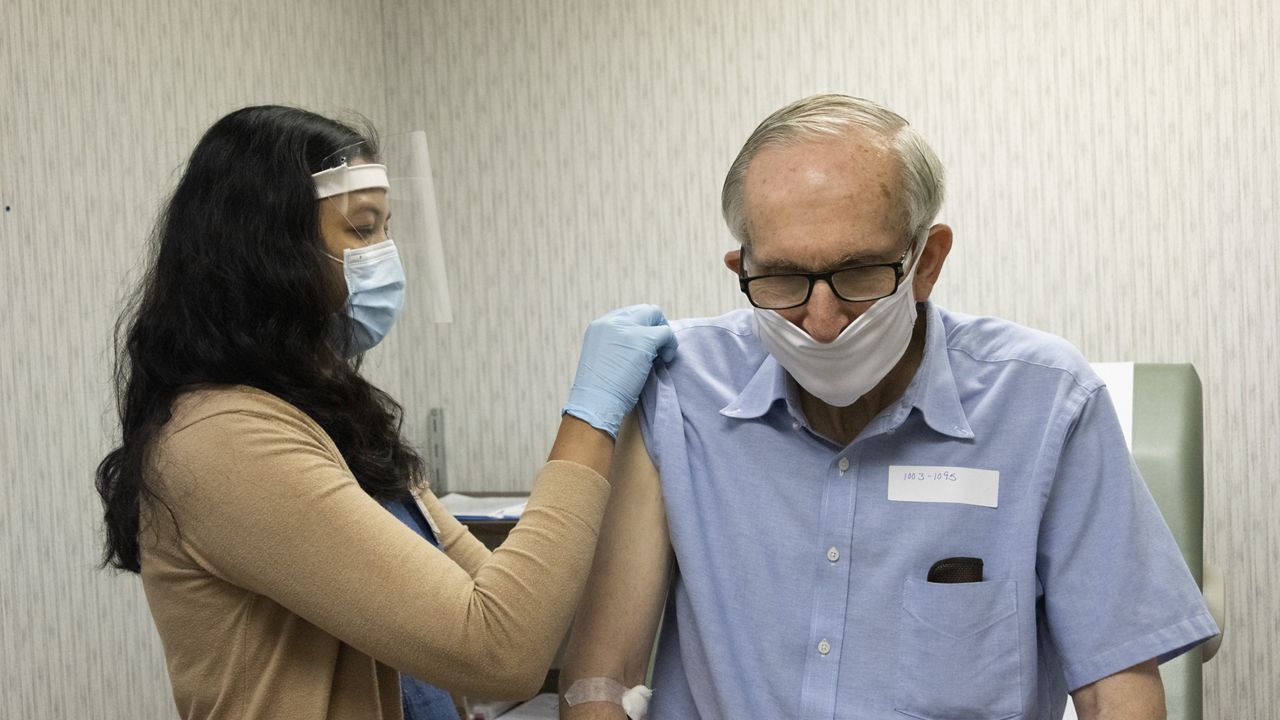NATIONWIDE — On Monday, November 30, Moderna Inc. said it will ask U.S. and European regulators to permit emergency use of its COVID-19 vaccine following successful testing.
Moderna joins Pfizer/BioNTech and AstraZeneca in preparing to roll out a vaccine as the coronavirus worsens in much of the world, straining hospital personnel and other resources.
However, in order for a vaccine to truly be successful in helping to end the pandemic, experts suggest that 60-80% of a given population needs to become immune to the virus, achieving herd immunity in the process.
The results of a recent Gallup poll on the number of Americans willing to be vaccinated are a little more encouraging than polling in October, but concern remains.
According to results from November 17, 58% of Americans say they are willing to get a COVID-19 vaccination, which is up from 50% in October.
While the results are favorable, 42% of Americans resisting a vaccine could be a problem for achieving herd immunity and getting back to some semblance of normalcy.
Breaking the poll responses down, Gallup found that Democrats showed the greatest increase in willingness to get vaccinated, with 69% saying they would in the latest poll, compared to 53% in an earlier poll.
Also up in willingness to be vaccinated are Americans aged 45 to 64. Among that group, 49% indicated willingness to do so, compared to 36% in the previous poll.
There was a 10-point increase in willingness to be vaccinated among women with and without college degrees.
When it comes to the subject of why people don’t want to be vaccinated, 37% of respondents indicated they believe vaccines were rushed. Twenty-six percent of respondents said they want to wait in order to confirm the vaccine is safe. Twelve percent said they don’t trust vaccines in general, and 10% want to wait to see how effective it is. Another 15% cited “additional reasons,” including the possibility that the politicization of the vaccine may have compromised its safety.
Texas Gov. Greg Abbott earlier in November announced the state’s preliminary plans for vaccine distribution.
Health care workers, vulnerable populations and long-term care facilities will get the first shots. This includes staff at hospitals and long-term care facilities, emergency medical services and home health care workers. The state health department's Expert Vaccine Allocation Panel put together the guidelines.
"These guiding principles established by the Expert Vaccine Allocation Panel will ensure that the State of Texas swiftly distributes the COVID-19 vaccine to Texans who voluntarily choose to be immunized," Abbott said. "This foundation for the allocation process will help us mitigate the spread of COVID-19 in our communities, protect the most vulnerable Texans, and safeguard crucial state resources."



